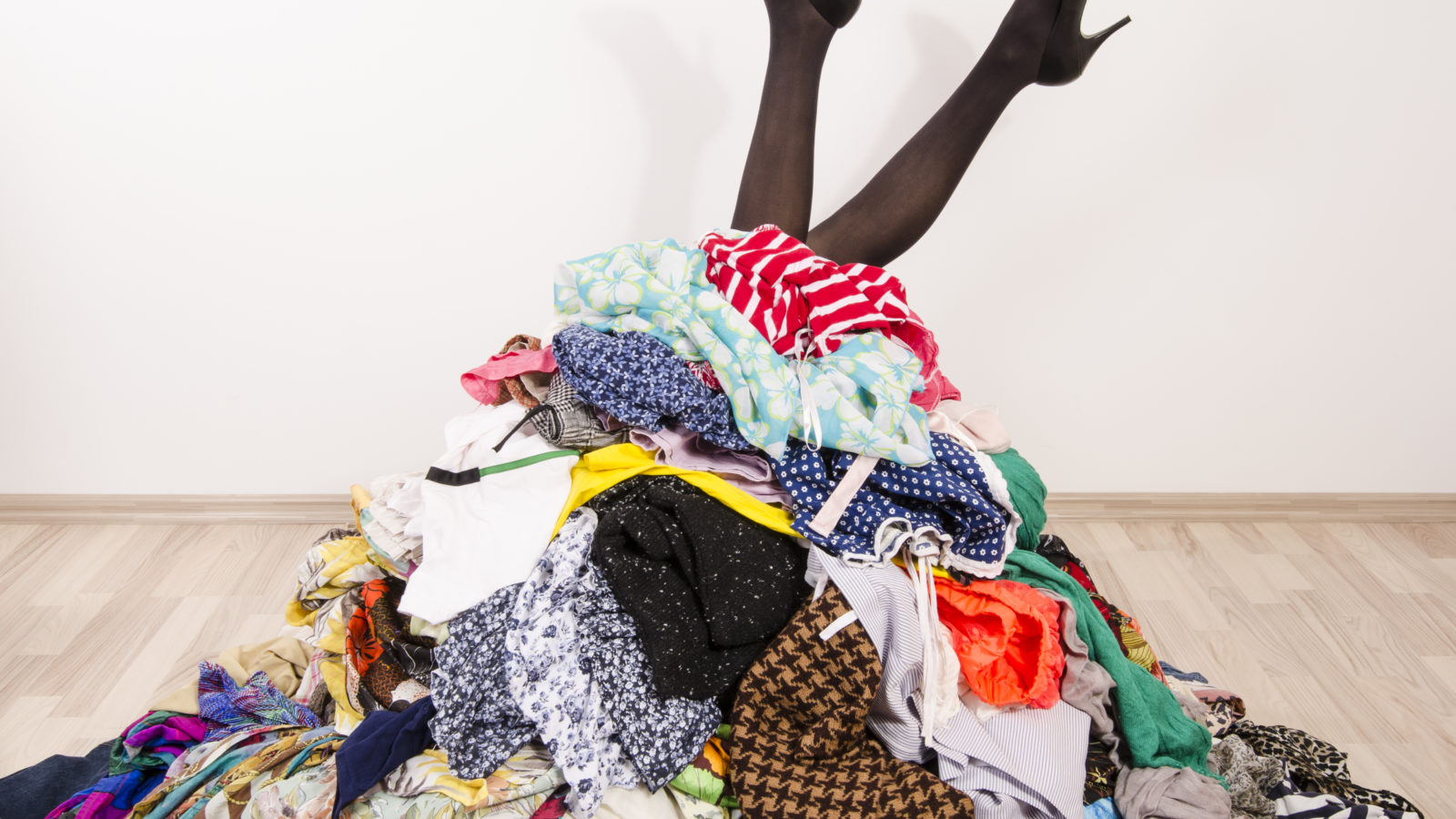“Messy bed, messy head.” “A clean space promotes a clean mind.” Cliches like these have been muttered for ages — and scoffed at by anyone who, like me, may have missed the Marie Kondo gene. But eye rolls aside, there’s research to support the fact that too much clutter can negatively affect our well-being and stress us out more than we think.
On a practical level, “the disorganization and chaos that clutter creates can make it more difficult to accomplish daily life tasks,” says Catherine Roster, Ph.D., a professor at the University of New Mexico’s Anderson School of Management, and co-author of a 2016 study on the impact of our messy ways. What’s more, “clutter can increase negative emotions, such as feeling overwhelmed, frustrated, or even embarrassed.” It can even induce a spike in cortisol, a stress hormone.
And while clutter can be an issue for everyone, it tends to be an even bigger challenge for people like me whose home or apartment is on the smaller side. So when Pop Up Grocer, a traveling, pop-up grocery store that also hosts events on healthy living topics, invited me to chat with professional organizer Beatrice Copeland, I jumped at the chance. I walked away with a few actionable Microsteps anyone can take to declutter their space, and in turn, their mind.
Adopt a no-freebies policy
These days, it’s easy to accumulate a lot of free stuff. And all those tote bags, T-shirts, water bottles, and other miscellaneous items — even if they seem like a good idea to bring home at the time — only add unnecessary clutter to our spaces, Copeland says. More often than not, the free stuff we collect isn’t useful or beneficial, so just start saying no to freebies.
Put one thing away each night
Before you go to bed in the evening, take one thing that’s out of place in your surroundings and give it a permanent home, Copeland suggests. And yes: It’s OK if its new home is the trash can or recycling bin.
Take a hands-off approach
Many people hold onto objects for too long because they’ve attached sentimental value to them, and this connection can be heightened when actually holding things in our hands. When you’re cleaning out your closet or a set of drawers, consider calling a friend for help. “Have somebody else hold the pair of black pants and say, ‘Do you need this?’,” Joseph Ferrari, Ph.D., a professor of psychology at DePaul University who studies the causes of clutter and its impact on emotional well-being, suggests to The New York Times. “Once you touch the item, you are less likely to get rid of it.”
Make decluttering a priority
Of course, Copeland noted, part of getting organized simply comes down to staying committed. If you want your space to be less cluttered, try scheduling cleaning sessions in your calendar in the same way you would a doctor’s appointment or a workout class. And when you think of all the hours you’ve wasted looking for misplaced items, this investment of time will actually save you time in the long run.
Follow us here and subscribe here for all the latest news on how you can keep Thriving.
Stay up to date or catch-up on all our podcasts with Arianna Huffington here.


